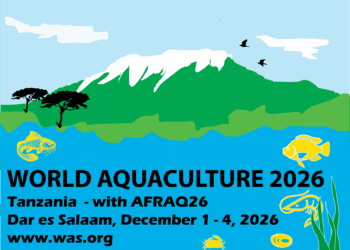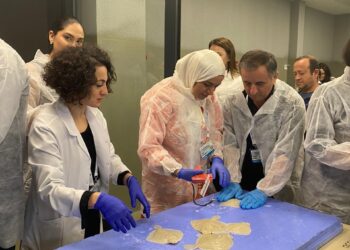Aquaculture and fisheries in the Mediterranean: a fragile balance – Aquaculture is growing rapidly in the Mediterranean, supporting the increasing demand for fish globally. However, this growth brings with it a number of challenges that affect not only the environment, but also the wild fisheries ecosystem and the genetic heritage of fish species. Farmed sea bream and sea bass, when escaping from aquaculture facilities, enter wild shoals, contributing to increased catches and altering the natural balance of the marine ecosystem.
A recent study published in Nature’s Scientific Reports clearly demonstrated that, in the Mediterranean Sea, escapes of farmed fish significantly affect fishing landings. In particular, for sea bream (Sparus aurata), an increase in catches was shown to be due to the biomass of the farmed fish managing to escape, which generates an effect that, in many cases, masks the exploitative state of wild populations. Although bass also initially showed a similar trend, post escape mortality and the difficulty of catching them have mitigated this effect in recent years.
While aquaculture is a key resource for ensuring fish supplies, it is not immune to ecological issues. When farmed fish mix with their wild conspecifics, they can transmit diseases and parasites, as well as cause genetic variation. In the Mediterranean, where wild stocks are already under pressure from overexploitation and human activities, this hybridisation could pose a significant risk to local biodiversity and the resilience of marine ecosystems.
With the increasing frequency of extreme weather events, such as severe storms that damage aquaculture facilities, the risk of massive fish escapes increases, leading to a cumulative impact on wild fish populations. Although seabream and seabass aquaculture has become an integral part of the Mediterranean fish sector, monitoring and management of escapes is now crucial to minimise negative effects on an ecosystem scale.
To meet these challenges, monitoring plans should be implemented to identify escaped fish and emergency measures should be taken to reduce the entry of farmed specimens into the market as wild fish. This strategy would ensure better management of resources and greater control of food security. The research highlights how farmed fish can alter marine balances and contribute, in an unplanned way, to the ‘restocking’ of wild species, underlining the urgency of developing sustainable practices and advanced technologies to contain escapes and safeguard the Mediterranean ecosystem.
Aquaculture and fisheries in the Mediterranean: a fragile balance








